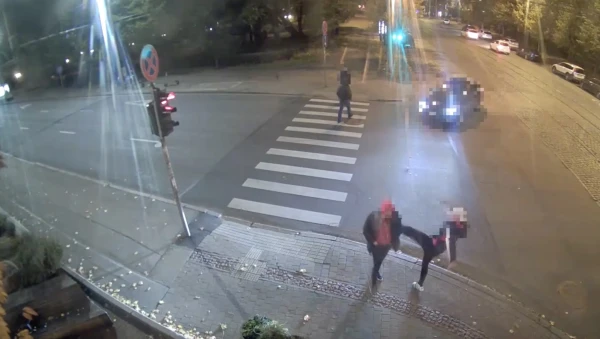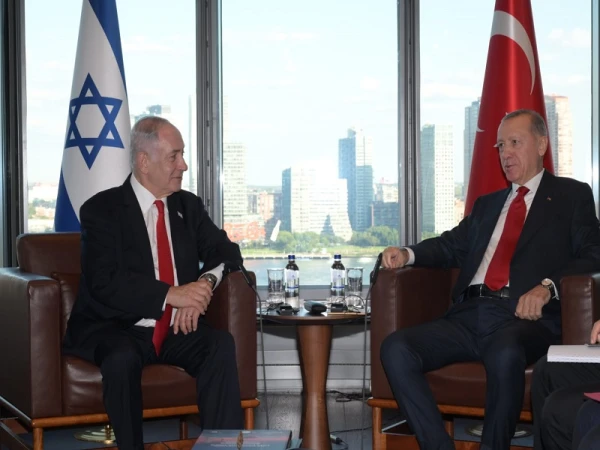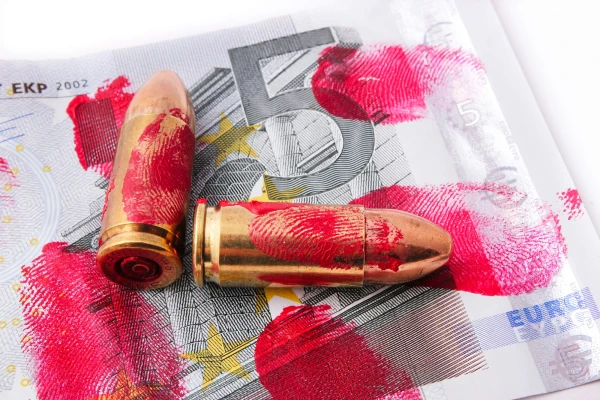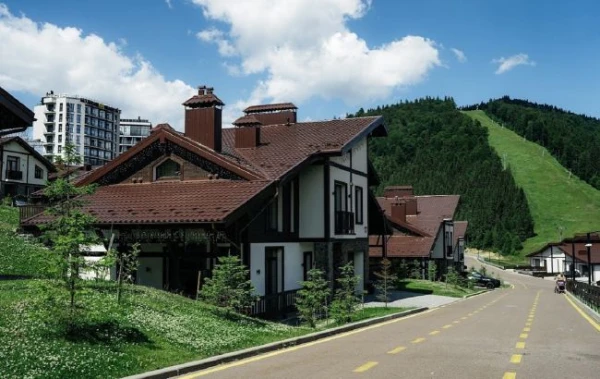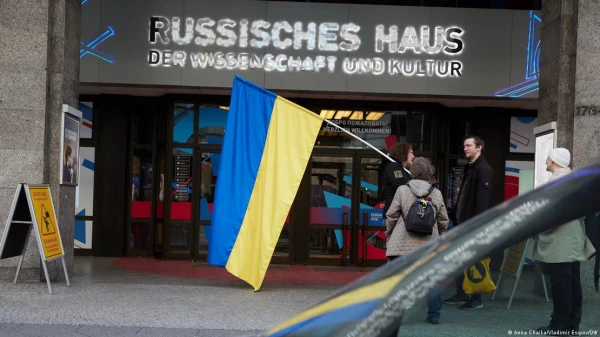
Two-thirds of the visitors of Moscow's property are Germans.
Despite sanctions, protests from activists, and calls from politicians, the Center for Russian Culture in Berlin continues to operate as if nothing has happened. The court's decision in Munich regarding the lawsuit of the Russian House against the Bundesbank helps to understand why.
The director of the house, Pavel Izvolsky, in a written comment for DW, describes these clashes as "verbal harassment" and "outrageous manifestations of xenophobia." Some Bundestag deputies from the CDU/CSU bloc and the Green Party support the activists and demand - for the fourth consecutive year - the closure of the Russian House, which is guarded by police at the entrance. But it remains open and operates as if nothing has happened. Why?
The Russian House Against the Bundesbank
As early as the summer of 2022, the European Union included the federal agency Rossotrudnichestvo, which is part of the Russian Foreign Ministry and promotes the Russian language and culture abroad, in its sanctions list. As part of these sanctions, the Bundesbank blocked the accounts of the Russian House - since then, the Center for Russian Culture can only make bank transfers with the bank's approval. Justification must be provided for each planned transaction.
In 2023, the Russian House filed a lawsuit against the Bundesbank in the administrative court of Munich, its director Pavel Izvolsky told DW. The plaintiff demanded the unblocking of funds in its bank accounts, as otherwise it could not pay for electricity. "We challenged not only the law enforcement practices of the Bundesbank but also the very application of sanctions against the Russian House," Izvolsky commented.
At the end of June, the court dismissed the lawsuit. The materials from the court session became available to journalists only in early November. The headquarters of the Bundesbank is located in Frankfurt am Main, but the lawsuit was filed in the Munich court because the Bundesbank's division responsible for monitoring financial transactions is located in Munich.
The Court in Munich Did Not Believe
In court, the director of the Russian House tried to prove that the building in Berlin and the center he heads have no relation to Rossotrudnichestvo, are completely independent legal entities, and therefore cannot be subject to sanctions.
The court did not consider these arguments, siding with the EU and the authorities of Germany. According to the court, there is more than enough evidence of a direct connection between the Russian House and Rossotrudnichestvo - down to details like the stamp that simultaneously indicates both organizations and the power of attorney issued in the director's name, in which he is listed as a representative of Rossotrudnichestvo in Germany. Therefore, the court ruled that the Russian House can still manage its money in bank accounts only with the bank's approval - specifying the purpose of the transaction and its amount.
However, as stated in the court materials, the inclusion of an organization or legal entity in the sanctions list does not equate to a desire to close or destroy it entirely. That is, sanctions allow for minimal actions to maintain viability - such as operating accounting, paying taxes, and paying utility bills. Therefore, closing the Russian House is not an end in itself.
The Bundesbank even analyzed the electricity bills issued to the Russian House by the electricity supplier. Its name was removed from the court materials. It turned out that from February to April 2023, the Russian House consumed more electricity than in the same period of 2022, leading the court to conclude that after the EU sanctions against Rossotrudnichestvo were imposed, activity in the Russian House did not decrease but increased.
To understand whether the electricity is used to maintain the viability of the Russian House or for conducting additional events, the Bundesbank requested a list of activities for which electricity was used from its management. However, representatives of the Russian House were unable to provide such an overview, justifying this by stating that all electricity consumption goes through one meter.
The court ruled that "the presence of only one electric meter does not mean that the plaintiff cannot determine the volumes of electricity consumed depending on the premises, their area, the number of chandeliers, and electrical appliances."
The Court Sided with the EU and the Bundesbank
According to the court, the Bundesbank did not demand anything impossible from the Russian House. Therefore, it sided with the bank, denying the plaintiff's request to unblock the funds.
According to Pavel Izvolsky, the lawyers of the Russian House are studying the court materials, after which they will determine their next steps. He stated that two-thirds of the visitors are Germans. And the main part of the program is aimed at them.
The decision of the administrative court in Munich has not yet entered into legal force. The press service of the court informed DW that, by law, the parties have one month from the receipt of the written verdict to appeal it. And since the document was sent to the parties only in early November, information about whether one of the parties will file an appeal can be expected no earlier than mid-December.
<iframe width="560" height="315" src="https://www.youtube.com/embed/lT3gFHX7wug?si=_cWx7Pd5Mhnm43z9" title="YouTube video player" frameborder="0" allow="accelerometer; autoplay; clipboard-write; encrypted-media; gyroscope; picture-in-picture; web-share" referrerpolicy="strict-origin-when-cross-origin" allowfullscreen></iframe>
